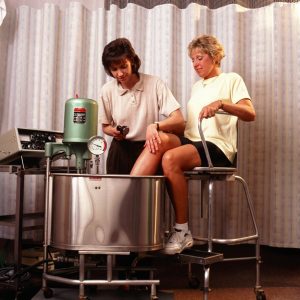Expert Witnesses: Supporting Your Nursing Opinion
 Expert witnesses need to provide an attorney with evidence to support their opinions. I am an independent legal nurse consultant with over a decade of experience who has reviewed dozens of expert cases and thousands of “behind the scenes” cases. I have provided deposition and trial testimony. Communicating this evidence of your opinion can be accomplished in various ways. Here are some examples of nursing home cases in which I used case specific information, other than nursing or physician notes to support my opinions.
Expert witnesses need to provide an attorney with evidence to support their opinions. I am an independent legal nurse consultant with over a decade of experience who has reviewed dozens of expert cases and thousands of “behind the scenes” cases. I have provided deposition and trial testimony. Communicating this evidence of your opinion can be accomplished in various ways. Here are some examples of nursing home cases in which I used case specific information, other than nursing or physician notes to support my opinions.
Physical and Occupational Therapy Notes:
My first trial testimony involved a nursing home patient who became trapped in the side rails and was strangulated. As a plaintiff expert, I opined that the patient was not an appropriate candidate for side rails from the very beginning.
The nursing staff documented that she used the side rails to assist in turning and positioning. The nursing and nursing assistant documentation was inconsistent about the resident’s ability to turn in the bed. The nurses and aides described her on a continuum from completely independent to requiring extensive assistance to being totally dependent.
In this case, I relied heavily on the physical and occupational therapy notes as they treated the resident five times weekly for a period of months prior to her death. This documentation consistently showed the resident was unable to use the side rails to her benefit; she required total assistance to turn and position in bed.
After reviewing page after page of therapy notes in the courtroom, the judge asked how many more examples were left. When I indicated we were just getting started, the judge stated he had seen enough evidence. This case resulted in a plaintiff verdict.
Flow Sheets Help Expert Witnesses
In one case, I heavily relied on the ADL Flow Sheets as they consistently showed the resident was eating less than 50% of most meals and refusing supplements without appropriate nutritional intervention.
In another case, a neurological assessment flow sheet clearly documented a resident’s change in condition over a 12-hour period after a fall including unequal pupils, left-sided weakness, and a severe headache. Yet, despite these obvious changes, there were no nursing interventions until the patient was found obtunded early the next morning. He expired soon after arriving to the hospital.
Facility Policies
Sometimes supporting evidence is not found within the medical record itself. The information needed to support expert witnesses may be in the facility’s policies and procedures or other internal documentation tools.
I once had a choking case in which a patient who was prescribed a mechanical soft diet choked on cooked carrots and asphyxiated. The autopsy report was very specific; it described the size of each piece of food removed from the pharynx. Each piece measured approximately ¾ inch x ¾ inch. The facility’s policy for mechanical soft diets was equally specific, noting foods must be cooked and chopped no larger than ½ inch x ½ inch. Bingo! That case quickly settled out of court.
24 Hour Reports
Likewise, expert witnesses may pay particular attention to good nursing documentation. In one case the nursing staff was cleared of negligence by their documentation of specific information communicated to the physician on the 24 hour report.
Incident Reports
Incident reports can be obtained by the plaintiff attorney after suit is filed in certain cases. When the incident report is referenced in the medical records it opens the door to retrieving the document.
In a frequent fall case, my review of the incident reports revealed the batteries in the chair/bed alarm were dead on one occasion. Twice the unit was turned off; and in yet another fall the alarm was not in use. This helped to prove negligence of the nursing staff.
The above described examples are from nursing home cases.
We discuss the critical and supporting information found with in the medical record and show you how to document the evidence to support your opinion(s) so that the attorney receives a concise report that clearly shows where the supporting evidence can be found in the chart and why that evidence is important to the case. Well written reports by expert witnesses that include supporting evidence will be used by the attorney throughout the litigation process.
Angie Duke-Haynes, RN is President of Premier Medical Legal Consulting, LLC, co-owner of Legal Nurse Consulting Institute, LLC.
